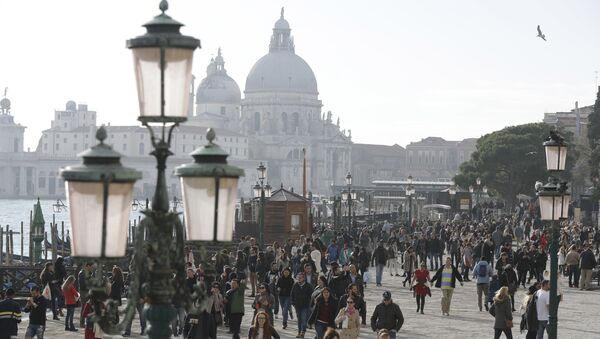Kristian Rouz — Top European officials and economists have sounded the alarm over the possible negative effects of the Italian budget stand-off with EU fiscal rules, even though Rome and Brussels appear to have reached a provisional understanding on Italy's 2019 spending plans. The warnings come as the EU recently intensified its push for a single fiscal policy.
In an interview with Welt am Sonntag Saturday, President of the Bundesbank Jens Weidmann said Italy's budget could derail EU plans to conduct a coordinated and — in the future — centralised fiscal policy.
Germany's top banker said a compromise deal reached between Rome and Brussels weakens the EU's ability to enforce its fiscal rules across the bloc.
"The original promise to cut the deficit has been compromised", Weidmann said. "It makes it difficult for the Commission and other governments to press for solid state finances in the future".
Weidmann's remarks come shortly after the so-called "Christmas Truce" between Rome and the EU. According to the deal's terms, Italy will lower its budget deficit target for next year to 2.04 percent from the initial goal of 2.40 percent.
READ MORE: Italian Prime Minister Reiterates Need to Lift Russia Sanctions — Moscow
Even though the European Fiscal Compact mandates that member states not run deficits above 3 percent of their GDP, requirements on structural deficits are country-specific. Part of the reason Italy was pressured by the EU to slash its annual deficit as much as possible is its debt-to-GDP ratio of some 132 percent.
But some experts say the deal will not resolve the brewing political conflict between Italy's populist government and EU officials.
"It took them three months of wrestling to reach this agreement. One wonders, will it double next time? Will they start renegotiating in July of 2020? We have to wait and see", EU relations expert Craig Copetas, formerly of Bloomberg News, said. "Now, at 2.04 percent, Italy is whistling past the graveyard because this issue is going to return".
Among the measures postponed as part of the EU agreement are Italy's pension reform and an infrastructure package — although Rome can build and renovate some roads and bridges without breaching the EU deal.
Additionally, Italy agreed to increase its value-added tax (VAT) if its budget gets worse in 2020 and 2021 — a measure that would be highly unpopular among the populist voting base.
READ MORE: EU Bid to Allow Member States to Pay Way Out of Accepting Migrants Nothing New
"Let's be clear — the solution is not ideal", Valdis Dombrovskis, vice-president of the European Commission, said. "But it avoids opening the excessive deficit procedure at this stage. And it corrects the situation of serious non-compliance with the stability and growth pact".
In light of this, the compromise agreement appears to be two-sided leverage: on the one hand, Italy's spending plans are stretching the EU's fiscal rules. On the other, the EU now has a powerful tool to ramp up its pressure on Rome in case Italy deviates from the bloc's rules in the future.





